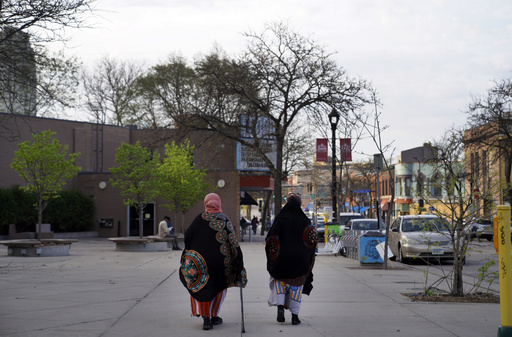Fartun Weli, a leader of Isuroon, a community nonprofit supporting Somali refugee immigrant women and families in Minnesota, has expressed concerns about predatory practices targeting low-income Somali Muslims in the state. Many of these individuals, who have little knowledge of formal homebuying procedures and often struggle with credit issues, are lured into purchasing homes through arrangements that comply with Islamic law by avoiding interest on loans.
The predatory sellers offer homes at seemingly attractive prices without interest, structuring the deals as contracts for deed. In these agreements, buyers make a significant down payment and monthly installments, with the seller retaining legal ownership until the entire loan is repaid. While these transactions circumvent traditional banking processes, they lack oversight, allowing sellers to inflate prices and neglect property conditions.
The Consumer Financial Protection Bureau (CFPB) has announced intentions to investigate such deceptive practices surrounding contracts for deed and is encouraging individuals to report predatory loans. These agreements, which involve private sellers providing financing without adhering to typical mortgage regulations, will now be subject to the Truth in Lending Act, per the recent declaration by the federal agency.
At a field hearing in St. Paul, CFPB Director Rohit Chopra highlighted the impact of predatory lending on the Somali Muslim community in Minnesota, warning about hidden payments and substandard living conditions that could jeopardize families’ housing situations. Chopra emphasized the need for a supportive system where financially struggling individuals feel empowered to seek help and report exploitative practices.
The Pew Charitable Trusts has reported approximately 1.4 million Americans utilizing contracts for deed to purchase homes in 2022. While efforts to regulate such agreements face challenges due to varying state laws and perspectives, advocates stress the need for protections for vulnerable communities. Real estate groups, while supporting measures against predatory lending, seek to ensure continued access to safe alternative products for buyers traditionally engaging in contracts for deed.
In light of these developments, calls for greater state-level regulation have emerged to safeguard the interests of marginalized communities. Advocates urge policymakers to address disparities and establish clear guidelines for sales involving contracts for deed, particularly to shield buyers and renters from potential exploitation. Furthermore, efforts to enhance financial literacy among immigrants and refugees are seen as crucial in empowering these individuals and reducing their susceptibility to fraudulent schemes.
For Somali Muslims in Minnesota, contracts for deed serve as an appealing option aligning with Islamic principles that prohibit the payment or receipt of interest on loans. Yasir Qadhi, an Islamic scholar, underscores the religious perspective on interest, viewing it as exploitative and emphasizing the charitable nature of providing loans. Weli hopes that heightened awareness within the Somali refugee community, coupled with increased resources for financial education, will foster a sense of security and empowerment, enabling more individuals to attain homeownership and stability in their new homeland.
Home Money & Business Federal Agency Investigates Predatory Lending Targeting Somali Muslim Community
